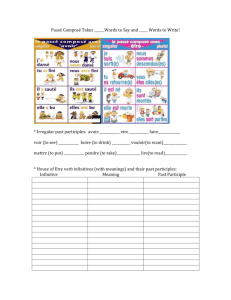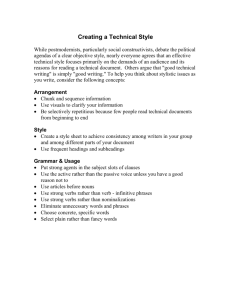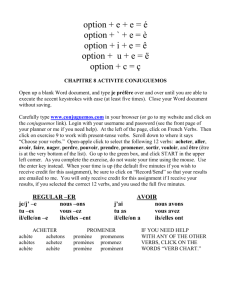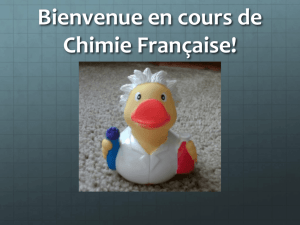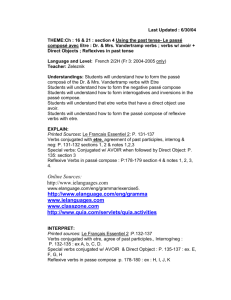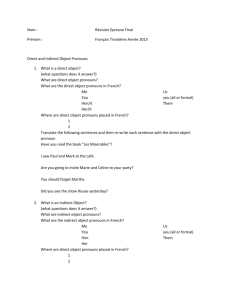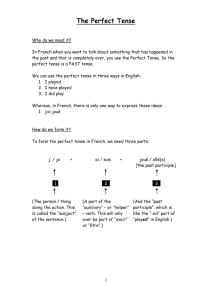Révision du Passé Composé : The Passe Compose is a two
advertisement
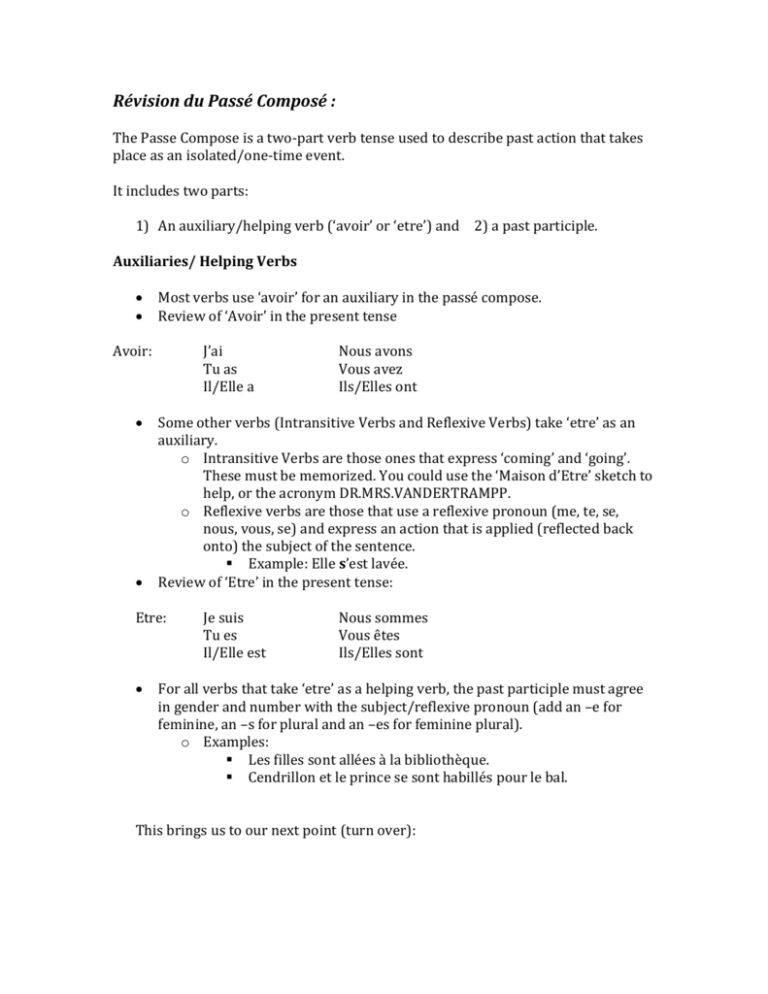
Révision du Passé Composé : The Passe Compose is a two-part verb tense used to describe past action that takes place as an isolated/one-time event. It includes two parts: 1) An auxiliary/helping verb (‘avoir’ or ‘etre’) and 2) a past participle. Auxiliaries/ Helping Verbs Most verbs use ‘avoir’ for an auxiliary in the passé compose. Review of ‘Avoir’ in the present tense Avoir: J’ai Tu as Il/Elle a Some other verbs (Intransitive Verbs and Reflexive Verbs) take ‘etre’ as an auxiliary. o Intransitive Verbs are those ones that express ‘coming’ and ‘going’. These must be memorized. You could use the ‘Maison d’Etre’ sketch to help, or the acronym DR.MRS.VANDERTRAMPP. o Reflexive verbs are those that use a reflexive pronoun (me, te, se, nous, vous, se) and express an action that is applied (reflected back onto) the subject of the sentence. Example: Elle s’est lavée. Review of ‘Etre’ in the present tense: Etre: Nous avons Vous avez Ils/Elles ont Je suis Tu es Il/Elle est Nous sommes Vous êtes Ils/Elles sont For all verbs that take ‘etre’ as a helping verb, the past participle must agree in gender and number with the subject/reflexive pronoun (add an –e for feminine, an –s for plural and an –es for feminine plural). o Examples: Les filles sont allées à la bibliothèque. Cendrillon et le prince se sont habillés pour le bal. This brings us to our next point (turn over): Past Participles: In most cases, past participles are formed by removing the ending of an infinitive and replacing it with a particular ending. These follow a predictable pattern for most –ER, -IR, and –RE verbs. That pattern is as follows: o –ER verbs: Remove the –er at the end of the infinitive and replace it with –é. Example : ‘Parler’ becomes ‘parlé’. o -IR verbs: Remove the –ir at the end of the infinitive and replace it with –i. Example: ‘Finir’ becomes ‘fini’ o –RE verbs: Remove the –re at the end of the infinitive and replace it with –u. Example: ‘attendre’ becomes ‘attendu’ This pattern is very predictable. However, there are some notable exceptions. You must memorize these. Please see the list on pages R43 for those irregular past participles that are conjugated with ‘avoir’. The irregulars that are conjugated with ‘etre’ include: venir – venu devenir – devenu revenir – revenu mourir – mort naitre – né Il y a beaucoup d’information ici. J’espère que cela va vous aider a étudier !!!
